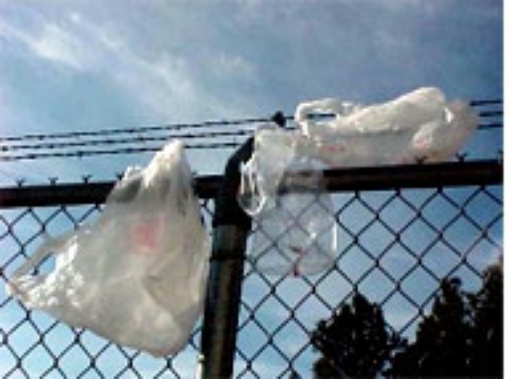Ireland's war on littering
Published on
Translation by:
 abla kandalaft
abla kandalaft
The Irish experience in the struggle against littering has proved so successful that other EU countries are now considering following their example
 On 4 March 2002, Noel Dempsey, the then Irish Minister for the Environment, sparked controversy when he declared war on littering; in other words, on all the rubbish we find scattered on the streets. A 15 euro cent tax was subsequently levied on each plastic carrier bag used by customers in supermarkets. This measure aimed to reduce the number of bags which, blown about by the wind, blighted the Irish countryside. In order to do this, consumers had to be coerced into changing their attitudes. Firstly, they had to ditch the habit of using as many bags as they wanted and, secondly, they had to be encouraged to reuse them.
On 4 March 2002, Noel Dempsey, the then Irish Minister for the Environment, sparked controversy when he declared war on littering; in other words, on all the rubbish we find scattered on the streets. A 15 euro cent tax was subsequently levied on each plastic carrier bag used by customers in supermarkets. This measure aimed to reduce the number of bags which, blown about by the wind, blighted the Irish countryside. In order to do this, consumers had to be coerced into changing their attitudes. Firstly, they had to ditch the habit of using as many bags as they wanted and, secondly, they had to be encouraged to reuse them.
Huge success
Within three months of the tax being introduced, the number of plastic bags handed out was reduced by 90% and, by the time five months had passed, 3.5 million euros had been raised. Three years later, the results are striking: there is not a single plastic carrier bag left in supermarkets as they have all been replaced by paper or reusable bags. Meanwhile, the millions of euros raised per year are used to supply an environmental fund, which finances recycling infrastructure.
Without wanting to rank Ireland alongside the Nordic states as one of the countries most concerned about the environment, this Irish success story has given other EU countries quite a few ideas. Indeed, for the past two years, Dublin has welcomed numerous parliamentary delegations from across Europe willing to learn the subtleties of such a system. Last December, Malta decided to adopt the measure, while the Scottish Parliament is currently considering levying a 10p tax on each bag used. Finally, the people in charge of Bruxelles-Proprete, the organisation that supervises the obligatory sorting of litter in Brussels, have just come back from a trip to Eire and are now examining the possibility of implementing the Irish measures in the European capital. This goes to show that environmental problems are not untreatable, even if simple good will is not enough to solve them. The tax provides consumers with the necessary stimulus as it encourages them financially to change their ways.
Not the only way
Nevertheless, many governments remain reluctant to induce such a change in attitude in an ‘authoritarian’ manner and even more so when this requires them to impose yet another financial cost on national industry. However, in general, European countries import plastic bags produced in Asia, so implementing such a tax only has limited consequences on national economies. But the same cannot be said about other types of litter. Again, the Irish experience in this matter proves instructive. On 25 March, the current Minister for the Environment, Dick Roche, put an end to the enduring suspense: he will not, he decided, impose a unilateral tax on every packet of chewing gum sold in Ireland - even though the astonishing amount of money required by the municipality of Dublin to remove the 500 tons of chewing gum spat every year onto the streets of Ireland would largely justify such a move.
Instead of imposing a tax on the consumer, the Minister would rather agree a fixed tax with the relevant industrial sector that the chewing gum manufacturer would pay in order to finance various campaigns to raise awareness and to clean the streets. The nuance between the two systems is fairly significant as they have different aims. Just as the tax levied on plastic bags should discourage their ongoing use, the measure targeting chewing gum aims to prevent the careless disposal of gum once chewed.
The fact that the fight against litter has received industrial backing is good, but it does not solve the problem as what is needed is a change in behaviour and manners. Even if industries financially contribute to a change in practice, it will not prevent people from carelessly throwing about their chewing gum and wrappers. As a result, a direct tax on the product would potentially aggravate the problem as people would tend to assume that once they have paid the said tax, the problem of littering is no longer in their hands and that another body is now in charge of it. It seems, then, that the economic tools used to tackle the problem of littering should be adapted to the chosen objectives: to reduce the use of a product that has been deemed harmful to the environment or change the behaviour of consumers.
Translated from Lutte contre les déchets en Irlande


